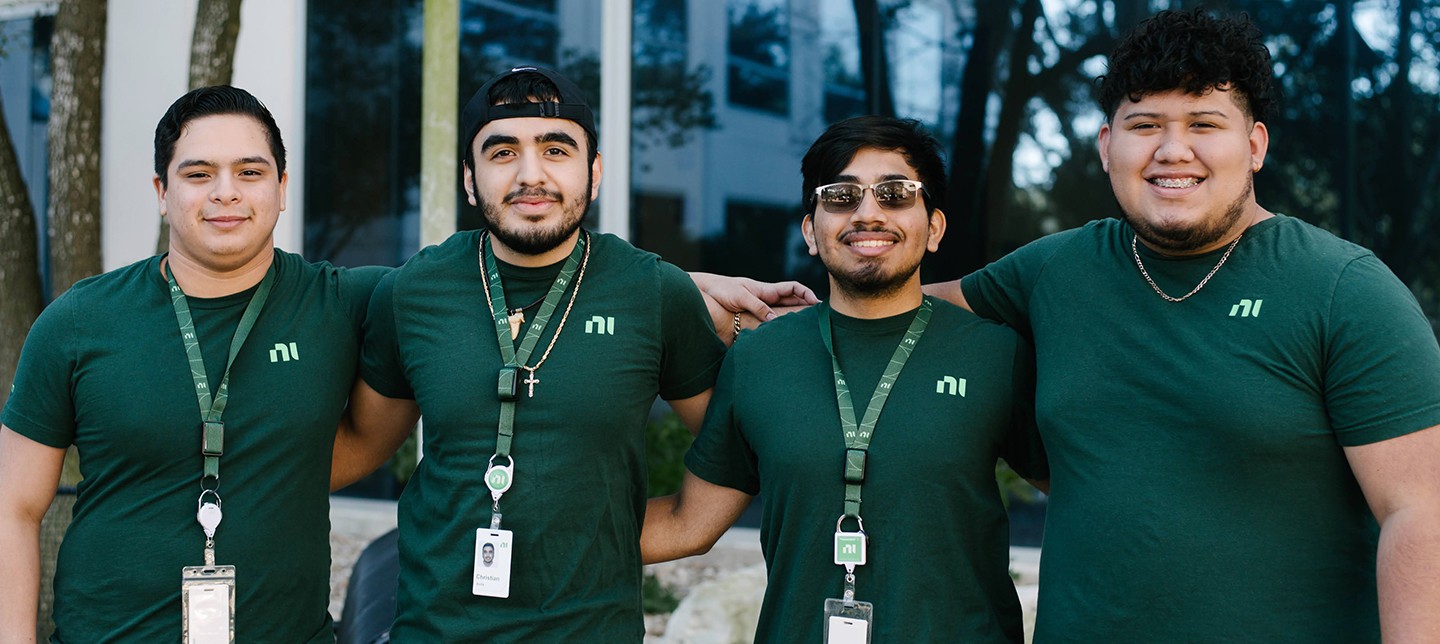
Black Girls CODE Fosters Diversity in Tech
Black Girls CODE fosters diversity in tech by introducing young girls of color to computer programming, electrical engineering, and other STEM fields.

As our world becomes increasingly technocentric, it is important for the tech workforce to mirror the diversity of global technology users. Diversity increases innovation, as a mix of different perspectives helps teams look at problems from new angles.
However, many people from underrepresented populations or economically disadvantaged backgrounds still face barriers to pursuing technology careers. These barriers include a lack of access to high-quality STEM education in underserved communities, gender and racial biases, and the high price of post-secondary degree programs. In the U.S., tuition and fees now cost more than $21,000 per year at a public college and $32,000 at a private college. And the median wealth of Black and Latinx households is much lower than that of white households.
NI believes so strongly in building a more diverse workforce that our Corporate Impact Strategy includes a commitment to Changing the Faces of Engineering. We have set moonshot goals to significantly increase our gender and racial diversity by 2030, along with a goal to advance STEM education and workforce development opportunities for underrepresented populations. To this end, NI is providing alternative pathways to tech careers through apprenticeship and internship programs. Through partnerships with Austin Community College (ACC), Austin Urban Technology Movement (AUTMHQ), and Code2College, we are offering a continuum of opportunities for underserved high school students and college students—as well as professionals looking to change careers.
Each year, the NI Technical Scholar Program brings a cohort of ACC students to complete a two-year, paid NI apprenticeship while studying at ACC on an NI-funded scholarship. The first cohort in 2021 included Marco Reyes, a student from Manor Early College High School outside of Austin, Texas. Marco grew up taking apart gadgets—from VHS players to Nerf guns—to see how they worked, and he knew he wanted to pursue a tech career. While he wanted to be the first person in his family to get a college degree, he wanted to do it without taking on debt.
Marco had been working at a local grocery store to pay for his education, and the NI program enabled him to instead work as a hardware technician apprentice while earning his degree.
“I started out by shadowing techs to understand the instruments, the projects and the process,” said Marco. “My first official project was removing and replacing fuses on 14 boards, which was my favorite project because it got me used to talking to engineers, having a due date, and having all the responsibility.”
Each NI apprentice is mentored by the entire team as they complete hands-on projects. Marco’s sharp mind and strong work ethic immediately caught the attention of his colleagues. After graduating from ACC in May 2022 with two associate degrees—one in Manufacturing, Automation, and Robotics, and the other an Electronics Technician Specialization—NI hired him as a full-time R&D Technician in the test department. His latest project has been building his first test station for testing NI products.
Marco Reyes (r.) has graduated from apprentice to full-time NI employee.
Marco’s performance in this role led NI’s segmenting team, which is made up of more than 500 employees, to vote him “Rookie of the Year” for 2022.
“My team has repeatedly told me the students are working really well because they have such passion and excitement—they are really going after it. This team has an average tenure of 18 years at NI, and it’s been great to see the exchange of knowledge and ideas with these young adults,” said Mark Eskew, an engineering services section manager who serves as NI’s liaison to ACC for the Technical Scholars Program.
In addition to providing diverse perspectives for increased innovation, creating alternate career pathways also enables NI and other tech companies to solve larger talent acquisition challenges.
“Our technician roles are harder to fill because many schools are not training for this work,” said Mark. “Apprenticeships are a fantastic way for us to go into more schools and create opportunities for students to pursue STEM careers.”
The global technology sector is projected to have a shortage of 4.3 million workers by 2030 and cannot solve this shortage without tapping the natural genius that exists in every community. That’s why NI offers workforce training for professionals through our partnership with AUTMHQ, an Austin-based organization that bridges the gap between the Black and Hispanic communities and the technology industry through job placement, career development, and networking opportunities.
When NI became AUTMHQ’s first industry partner to deliver their new software apprenticeship program, we welcomed Clinton Parris as our first apprentice. Like Marco, Clinton grew up loving technology. After attending ITT Tech for electronics engineering, he thrived in a test technician job at Qualcomm, but after moving to be near his family in Houston, he found himself in a less-satisfying manufacturing inventory job at another company. He dreamed of getting back into tech—specifically software.
Clinton Parris (m.) is pivoting his career to software development.
AUTMHQ helped him prepare for a career change by providing him with mentors, resume reviews, and interviewing coaching. He landed the apprenticeship at NI, at which he helps the software engineering team with projects such as using FlexLogger™ to log data from sensors and systems. Clinton ultimately wants to become a software engineer to help others.
The thing that excites me is using software to solve a real-world problem that can help millions of people. That’s my passion and my goal. And I want to help other engineers the way NI is helping me.- Clinton Parris, NI Software Development Apprentice
To help people with a passion for STEM find their path earlier in life, NI also hosts high school interns through our partnership with Code2College. Tori Schulz, who interned at NI the summer after she graduated high school, entered The University of Texas at Austin knowing two programming languages. She learned Python through Code2College’s instruction from local technology professionals (including NI volunteers) and learned C-Sharp at NI.
Tori’s team at NI set up her projects in a way that enabled her to spend the summer after high school developing a feature for one of NI’s software applications, from beginning to end.
Tori Schulz completed two NI internships by her second year of college.
Tori enjoyed her experience at NI so much, especially working with her mentors, that she returned for another internship the summer after her freshman year. Her experience also directly impacted her studies and gave her a jump start in following in her father’s footsteps to become an aerospace engineer.
“I took a freshman aerospace class, which is an introductory coding course, and I realized: ‘NI and Code2College taught me all of this.’ I was able to perform really well.”
Overall, having programs for all ages and levels enables NI to build a pipeline of diverse talent—a pipeline that is also nurtured through the Generation NI program, which provides interns, apprentices, and new graduates with the onboarding and professional development they need to be successful.
“We really believe in providing a continuum of training and community to help people progress in their careers at NI,” said Jake Heller, manager of Generation NI and university relations.
Learn more about NI’s internships and apprenticeships and apply here.
